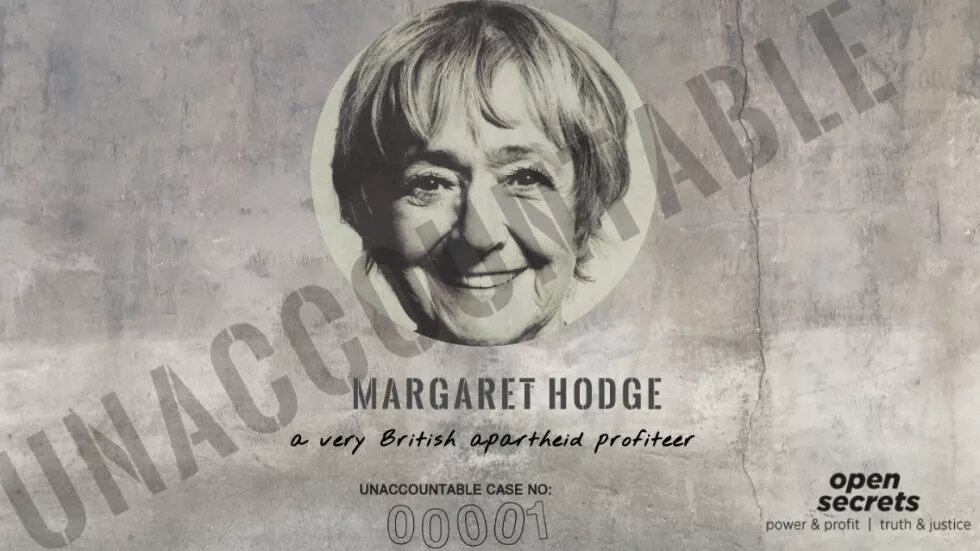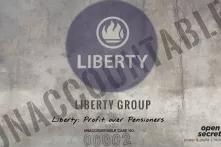Open Secrets is a non-profit organisation which exposes and builds accountability for private-sector economic crimes through investigative research, advocacy, and the law. See their previous project, Apartheid Guns and Money: A Tale of Profit.

It is amazing how many friends and admirers Nelson Mandela had. Particularly after his release. The people and institutions that supported apartheid, while claiming to do the opposite, are foremost among those who deserve, at the very least, a public accounting of their behaviour.
In June 1994, only two months after South Africa’s first post-apartheid election, Margaret Hodge gave an interview to the New Statesman. Hodge had just been elected as the Member of the British Parliament for the safe Labour seat of Barking. Asked what had had the greatest impact on her political beliefs, Hodge replied “the ending of apartheid and the holding of democratic elections in South Africa have restored a sense of optimism and hope that I was in danger of losing”. Asked “which political figure –living or dead – do you most admire?” well, you can guess who she answered. (See: ‘Margaret Hodge’, New Statesman, 17 June 1994, p. 13)
We can now reveal that her family’s very successful company ran a highly profitable joint-venture partnership in South Africa for the majority of the 1970s and 1980s: precisely the period in which the anti-apartheid movement had called for extensive economic sanctions and disinvestment. For the life of this joint venture, she saw fit to hold shares in the special purpose vehicle that held her family’s slice of the pie.
Open Secrets spoke with Alex Conneely Hughes, who works in the office of Margaret Hodge, following repeated attempts via email, WhatsApp and phone to elicit a written response from Hodge to our questions. Hodge conceded that she was aware of her family’s business in apartheid South Africa. According to her spokesperson, Hodge and her sisters protested this in a letter to their father in 1973. We were not provided with a copy of the letter following a request to do so. According to Hodge their father took no heed of this call. She further claimed that all profits she derived from the South African business between 1973-1994 were given to a charity. However, somewhat curiously, Hodge claims through her spokesperson not to have any recollection of the charities to which she donated her apartheid profits for a period of over 20 years. The spokesperson also couldn’t say how Hodge was able to determine what part of her dividends were made up of profits from South Africa and profits from other jurisdictions.
And while Hodge may have paid dividends to charities she can’t recall, she chose not to sell shares held in her own name. These shares would have increased in value as her family’s company thrived, including in apartheid South Africa.
****

